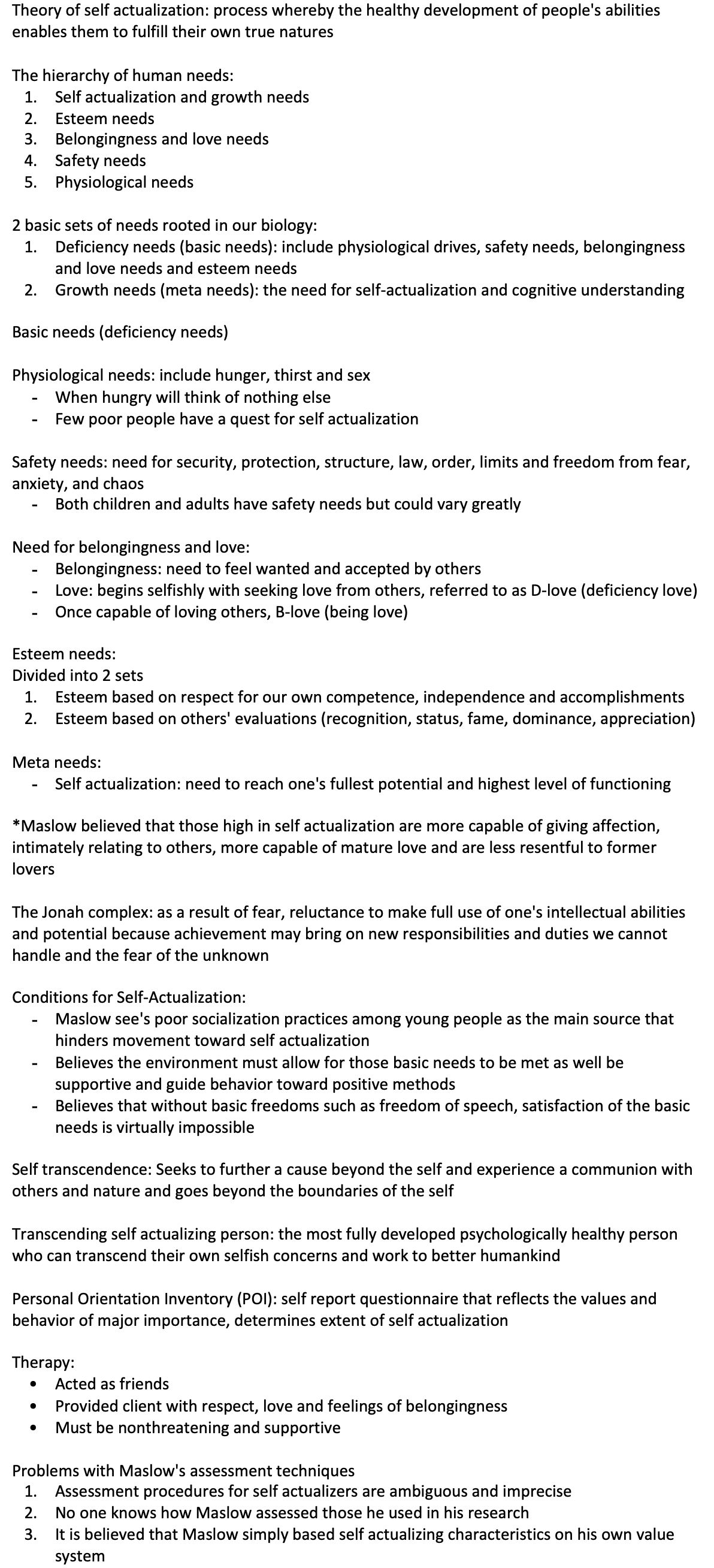Maslow's Self Actualization
Theory of self actualization: process whereby the healthy development of people's abilities enables them to fulfill their own true natures
The hierarchy of human needs:
Self actualization and growth needs
Esteem needs
Belongingness and love needs
Safety needs
Physiological needs
2 basic sets of needs rooted in our biology:
Deficiency needs (basic needs): include physiological drives, safety needs, belongingness and love needs and esteem needs
Growth needs (meta needs): the need for self-actualization and cognitive understanding
Basic needs (deficiency needs)
Physiological needs: include hunger, thirst and sex
When hungry will think of nothing else
Few poor people have a quest for self actualization
Safety needs: need for security, protection, structure, law, order, limits and freedom from fear, anxiety, and chaos
Both children and adults have safety needs but could vary greatly
Need for belongingness and love:
Belongingness: need to feel wanted and accepted by others
Love: begins selfishly with seeking love from others, referred to as D-love (deficiency love)
Once capable of loving others, B-love (being love)
Esteem needs:
Divided into 2 sets
Esteem based on respect for our own competence, independence and accomplishments
Esteem based on others' evaluations (recognition, status, fame, dominance, appreciation)
Meta needs:
Self actualization: need to reach one's fullest potential and highest level of functioning
*Maslow believed that those high in self actualization are more capable of giving affection, intimately relating to others, more capable of mature love and are less resentful to former lovers
The Jonah complex: as a result of fear, reluctance to make full use of one's intellectual abilities and potential because achievement may bring on new responsibilities and duties we cannot handle and the fear of the unknown
Conditions for Self-Actualization:
Maslow see's poor socialization practices among young people as the main source that hinders movement toward self actualization
Believes the environment must allow for those basic needs to be met as well be supportive and guide behavior toward positive methods
Believes that without basic freedoms such as freedom of speech, satisfaction of the basic needs is virtually impossible
Self transcendence: Seeks to further a cause beyond the self and experience a communion with others and nature and goes beyond the boundaries of the self
Transcending self actualizing person: the most fully developed psychologically healthy person who can transcend their own selfish concerns and work to better humankind
Personal Orientation Inventory (POI): self report questionnaire that reflects the values and behavior of major importance, determines extent of self actualization
Therapy:
Acted as friends
Provided client with respect, love and feelings of belongingness
Must be nonthreatening and supportive
Problems with Maslow's assessment techniques
Assessment procedures for self actualizers are ambiguous and imprecise
No one knows how Maslow assessed those he used in his research
It is believed that Maslow simply based self actualizing characteristics on his own value system
